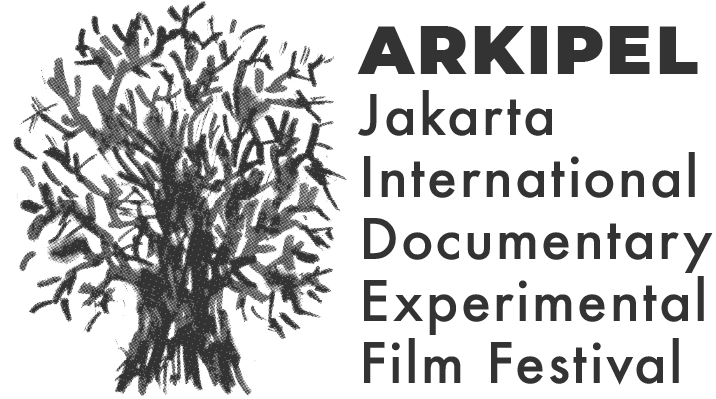august, 2016
Details
ARKIPEL – Jakarta International Documentary & Experimental Film Festival 2016 initiates a new program, namely "Candrawala - local landscape of now". The program will be applied every year as part
Details
ARKIPEL – Jakarta International Documentary & Experimental Film Festival 2016 initiates a new program, namely “Candrawala – local landscape of now“. The program will be applied every year as part of the festival and is set through a curatorial approach which concern with the recent visual phenomena of moving-image production in Indonesia. The target of this program is means for finding, mapping and articulating our visual discourse, particularly the latest development of cinema, among contemporary cross-disciplined symptoms which are continously affecting the perspectives on cinema in global context.
Candrawala is defined as exposition of visual locution on the works of moving image (or movie) which are interpreted based on the program’s vision, to wit: extending the paraphrase of the lost idioms in our central observation, for the sake of development of contemporaneity of cinema language. Etymologically, Candrawala is a combination of two Sanskrit words. The word ‘candra’ is generally translated as ‘moon’ but also defined as ‘a lovely or agreeable phenomenon of any kind’ (Monier-Williams Sanskrit-English Dictionary, 1899, p. 386). In Kamus Bahasa Indonesia (Pusat Bahasa, 2008), that word was also translated as ‘value or meaning that is implicitly behind the inscribed words’ (p. 258); whereas ‘mencandrakan’ means ‘depicting’ (KBBI online). Meanwhile, the word ‘wala’ is purposely taken from the word ‘cakrawala’ (or cakravala, presumably derived from cakravālaṁ) that means ‘horizon’. However the single word ‘vala’ itself also means ‘enclosure’ in English (Monier-Williams Sanskrit-English Dictionary, 1899, p. 927).
Some films that will be showcased in this program represent a horizon of trend of the works whose locutions are peripheral to the main angle, but they exist as a kind of visual expression at certain incline in our cinema landscape, particularly related to how the creators showed a particular preference as the quality of their consciousness in addressing the concept of cinema as well as the scope of its existing discourses. In that facet, Candrawala aims to open up the possibility for appropriate language findings, as well as to make the position of them be significant in the world of regional and global cinema.
This first Candrawala chosed five Indonesian films and inductively observed the significance of the tendency of exploration in using digital camera; the tools has been melted in everyday life of society, locations, and specific local events; and aspects of the exploration of the medium asserted that the five films are part of an extension of global discourse related to apparatus shifts of moving-image production tools. Home video devices are no longer a daily documentor media per se, but the filmmakers’ attitude of using the media have shown that domestic personal matters actually have fairly open relationship with the contemporary socio-political situation. The film works were also constructed by using the potential of observational camera while offering a metaphoric language that bases its visual grammar on the lines and spatial nuances. At this point, the visual expressions demonstrate a potential of awareness on forms without narrative burdens.
The works also seek a dramaturgical discipline, a seriousness of the imagination, as well as ethical sensitivity in its presentation, while still open a possibility for criticism of each genre of the films. The voices echoed by a five films confirm the local peculiarities, but they also have a possibility to be echoed globally. Whereas, local issues—particularly the matters of local rivalries—framed in each films actually have a relation to contemporary polemics in regional scope that sharply transformed due to recent transnational fluctuations, especially since the enactment of discourse for every nation to be part of the cross-border economic, political security and socio-cultural community: the spread of human bodies, thoughts, and even commodities in the current regional exchange have been triggering a kind of new disparity but at the same time a new hope for solutions to reach the power balance and decentralization of global society.
Time
(Thursday) 19:00 - 21:00
Location
TIM XXI
Address: Jl. Cikini Raya 73, Taman Ismail Marzuki, Daerah Khusus Ibukota Jakarta


